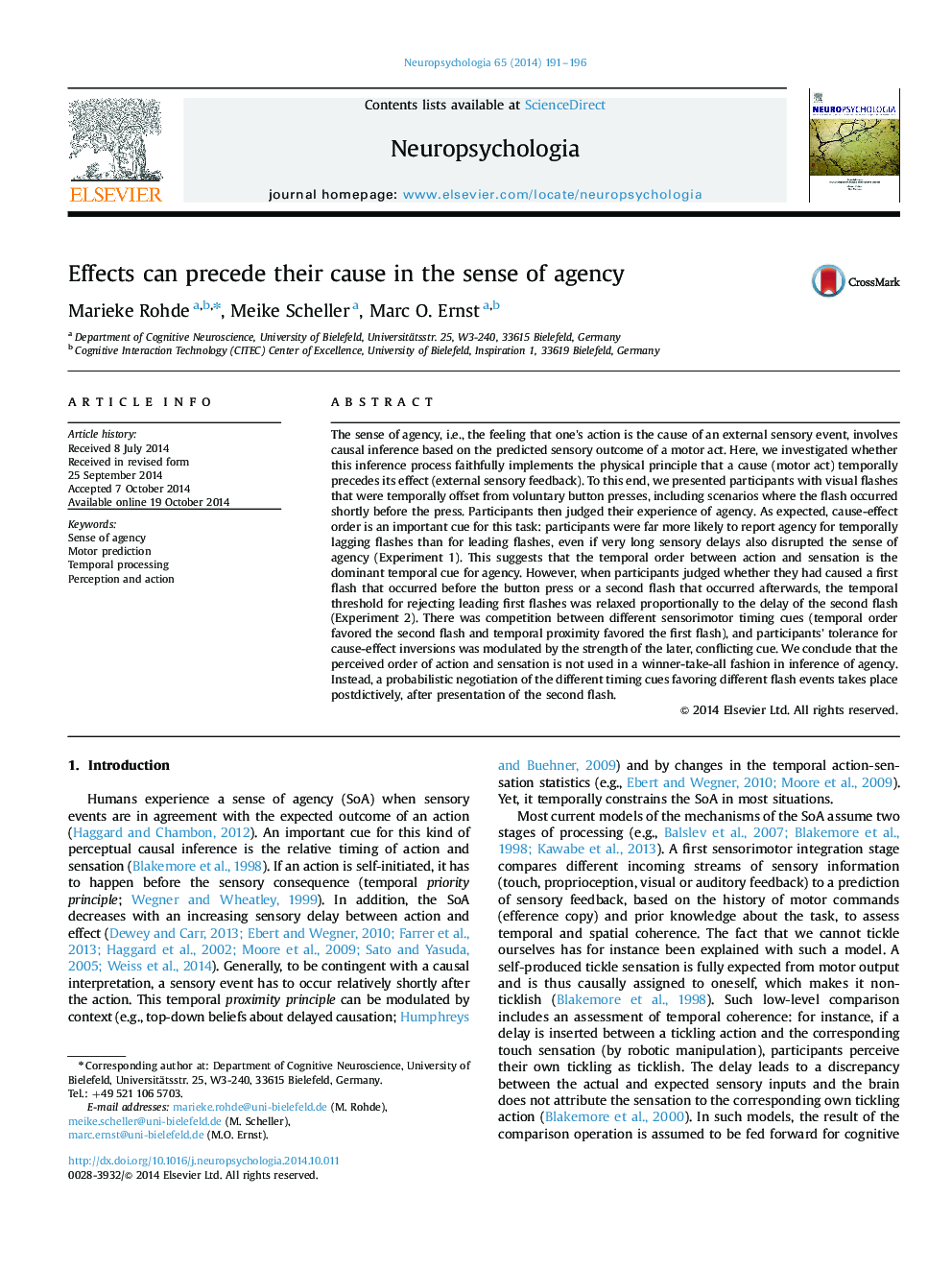| کد مقاله | کد نشریه | سال انتشار | مقاله انگلیسی | نسخه تمام متن |
|---|---|---|---|---|
| 7320775 | 1475588 | 2014 | 6 صفحه PDF | دانلود رایگان |
عنوان انگلیسی مقاله ISI
Effects can precede their cause in the sense of agency
ترجمه فارسی عنوان
اثرات می توانند علت آنها را به معنای آژانس پیش برد
دانلود مقاله + سفارش ترجمه
دانلود مقاله ISI انگلیسی
رایگان برای ایرانیان
کلمات کلیدی
احساس آژانس، پیش بینی موتور، پردازش موقتی، ادراک و عمل،
موضوعات مرتبط
علوم زیستی و بیوفناوری
علم عصب شناسی
علوم اعصاب رفتاری
چکیده انگلیسی
The sense of agency, i.e., the feeling that one׳s action is the cause of an external sensory event, involves causal inference based on the predicted sensory outcome of a motor act. Here, we investigated whether this inference process faithfully implements the physical principle that a cause (motor act) temporally precedes its effect (external sensory feedback). To this end, we presented participants with visual flashes that were temporally offset from voluntary button presses, including scenarios where the flash occurred shortly before the press. Participants then judged their experience of agency. As expected, cause-effect order is an important cue for this task: participants were far more likely to report agency for temporally lagging flashes than for leading flashes, even if very long sensory delays also disrupted the sense of agency (Experiment 1). This suggests that the temporal order between action and sensation is the dominant temporal cue for agency. However, when participants judged whether they had caused a first flash that occurred before the button press or a second flash that occurred afterwards, the temporal threshold for rejecting leading first flashes was relaxed proportionally to the delay of the second flash (Experiment 2). There was competition between different sensorimotor timing cues (temporal order favored the second flash and temporal proximity favored the first flash), and participants׳ tolerance for cause-effect inversions was modulated by the strength of the later, conflicting cue. We conclude that the perceived order of action and sensation is not used in a winner-take-all fashion in inference of agency. Instead, a probabilistic negotiation of the different timing cues favoring different flash events takes place postdictively, after presentation of the second flash.
ناشر
Database: Elsevier - ScienceDirect (ساینس دایرکت)
Journal: Neuropsychologia - Volume 65, December 2014, Pages 191-196
Journal: Neuropsychologia - Volume 65, December 2014, Pages 191-196
نویسندگان
Marieke Rohde, Meike Scheller, Marc O. Ernst,
